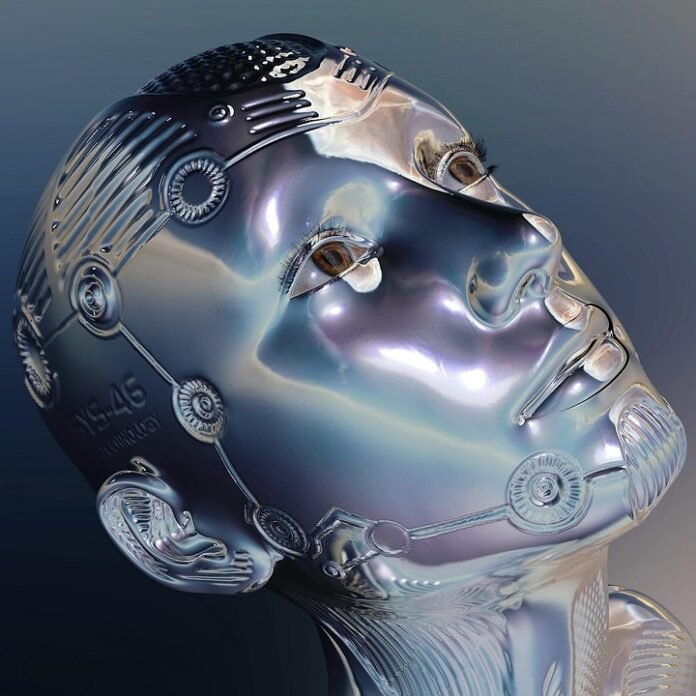The Quest for True Intelligence: A Look at General AI and Its Overarching Implications
Artificial Intelligence (AI) has rapidly permeated our lives, from suggesting movies to optimizing logistics. However, the AI we interact with today is largely considered "narrow" or "weak AI," excelling at specific tasks but lacking the broad cognitive abilities of a human. The holy grail of AI research lies in the development of General AI (AGI), also known as Artificial General Intelligence or Strong AI. AGI aims to create machines capable of understanding, learning, adapting, and implementing knowledge across a wide range of domains, essentially possessing human-level intelligence.
This article will provide an overview of General AI, exploring its definition, potential, challenges, and the ongoing debate surrounding its development.
What Exactly is General AI?
Unlike narrow AI, which is designed for specific tasks like image recognition or language translation, AGI would possess the following key characteristics:
- Broad Cognitive Abilities: AGI would be able to reason, learn, plan, problem-solve, and understand complex concepts across diverse fields, just like a human.
- Adaptability: It would be able to adapt to new and unforeseen situations without explicit reprogramming, learning from experience and applying that knowledge to new contexts.
- Common Sense Reasoning: AGI would possess the "common sense" understanding of the world that humans take for granted, allowing it to navigate complex situations and make informed decisions.
- Self-Learning & Improvement: An AGI system would be capable of continuously learning and improving its abilities without human intervention, potentially surpassing human capabilities.
The Potential of General AI: A Paradigm Shift Across Industries
The successful development of AGI promises to revolutionize virtually every aspect of human life, offering solutions to some of the world’s most pressing problems. Imagine the possibilities:
- Scientific Discovery: AGI could accelerate scientific breakthroughs by analyzing vast datasets, formulating hypotheses, and conducting experiments, potentially leading to cures for diseases and solutions to climate change.
- Economic Transformation: AGI could automate complex tasks across industries, leading to increased productivity, new job creation in areas like AI maintenance and development, and potentially a more equitable distribution of wealth (though this requires careful consideration).
- Personalized Education: AGI could create personalized learning experiences tailored to individual student needs, leading to more effective and engaging education for all.
- Solving Global Challenges: AGI could assist in tackling complex global challenges such as poverty, food security, and environmental sustainability by optimizing resource allocation and developing innovative solutions.
Challenges and Obstacles on the Road to AGI
Despite the immense potential, achieving AGI remains a significant scientific and engineering challenge. Some of the key obstacles include:
- Understanding Human Consciousness: We still lack a complete understanding of how human consciousness works, making it difficult to replicate in machines.
- Knowledge Representation: Representing and encoding the vast amount of knowledge required for general intelligence in a way that machines can understand and utilize remains a complex problem.
- Creating True Learning Algorithms: Developing algorithms that can truly learn and generalize from experience, without being limited to specific tasks, is crucial.
- Ethical Considerations: The development of AGI raises profound ethical questions regarding its potential impact on society, including job displacement, autonomous weapons, and the potential for misuse.
The Ongoing Debate: When and How Will AGI Arrive?
The debate surrounding AGI is heated, with experts holding varying opinions on its timeline and potential risks. Some believe AGI is decades away, while others argue it could arrive much sooner, potentially within the next few years.
Key areas of contention include:
- The Singularity: Some believe that the arrival of AGI will trigger a "singularity," a point in time when technological growth becomes uncontrollable and irreversible, potentially leading to either utopian or dystopian scenarios.
- AI Safety: Ensuring the safety and alignment of AGI with human values is a paramount concern. Researchers are actively working on methods to control and constrain AGI to prevent unintended consequences.
- Regulation and Governance: The development of AGI requires careful regulation and governance to ensure its responsible and ethical use. International collaboration and open dialogue are crucial to navigate this complex landscape.
Conclusion: Navigating the Future of Intelligence
The quest for General AI represents one of the most ambitious and transformative endeavors in human history. While the challenges are significant, the potential benefits are immense. As AI technology continues to evolve, it is crucial to engage in open and informed discussions about its implications, ensuring that its development benefits all of humanity.
Whether AGI arrives in the near future or remains a distant dream, its pursuit compels us to confront fundamental questions about intelligence, consciousness, and the future of our species. By carefully navigating the opportunities and risks, we can strive to harness the power of AGI to create a more prosperous, equitable, and sustainable future for all.

